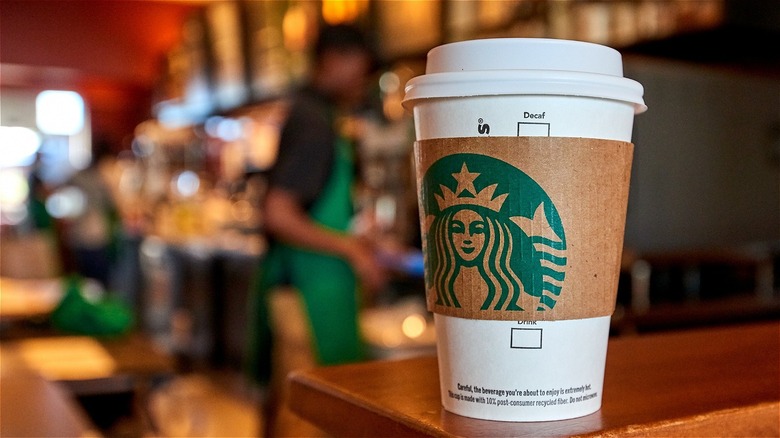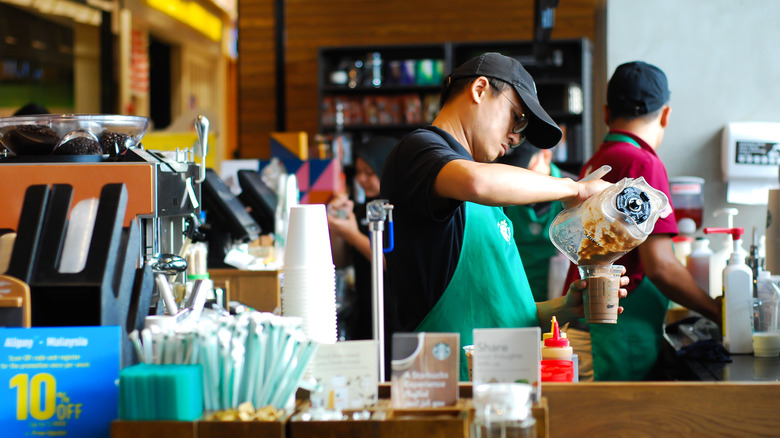Is This Why A Group Of Starbucks Employees Was Fired?
After firing seven workers from one of their Memphis locations that was trying to unionize, Starbucks is trying to convince the public that the unionization effort had nothing to do with it.
In a statement made to CNN Business, Reggie Borges, Starbucks' spokesperson, stressed that the firings occurred after the workers allowed reporters into their store after hours as they prepared to publicly launch their unionization plans. Worse, they led a tour through the back of the cafe, from which members of the public are apparently restricted. During this, they also "[left] an unlocked door unattended" and opened a safe. These constituted security violations warranted immediate termination but, apparently, had nothing to do with the fact that the purpose of the media visit was to draw the public's eye on the union drive.
Following the statement, Kylie Throckmorton spoke to Eater, claiming that the policy of not being allowed to be in the back of house while off the clock "had never been enforced before," and accusing Starbucks of "very much trying to nitpick and find anything they could to get rid of us." Other citations drawn up were not wearing a mask, even though Throckmorton said company policy allows for workers to remove their masks when not working and being in the store after hours. In each case, it seemed to Throckmorton that the policies only became important when a union drive was in effect.
The Starbucks firings do follow a pattern
One detail that may cause some to view Starbucks' story with some skepticism is that they have been charged with retaliatory firings before. In June, Andrew Gollin, an administrative law judge at the National Labor Relations Board, decided that the firing of two baristas from a Philadelphia cafe in 2019 was a violation of the National Labor Relations Act. In other words, he was swayed by the argument that the baristas were fired because they engaged in union activities.
It should also be noted a report by the Economic Policy Institute found that one in five union election campaigns feature a worker who was fired for engaging in union activity. While the suggestion that people pushing for a union would of course point to that push as the reason for their sacking may make sense to some, there is further historical evidence that Starbucks has been repeatedly found guilty of this crime. Back in 2008, another case before the National Labor Relations Board found Starbucks guilty of firing three baristas for their involvement in a unionization attempt (via The New York Times). More recently, the company has received charges of union busting during the eventually successful drive in Buffalo.
The idea that the attempt workers at the Memphis-based Starbucks and the enforcement of unenforced policies led to the firing of the same workers are somehow connected seems borne out.

